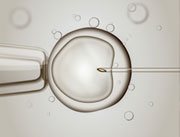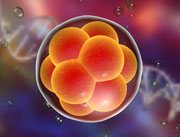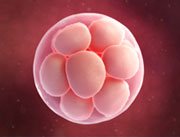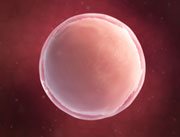Reciprocal IVF or ROPA Method

In vitro fertilization of the donor partner´s eggs with a sperm sample from an anonymous donor obtained from our bank. The embryo/s obtained are placed into recipient womans uterus expecting they will implant and give rise to a pregnancy. Treatment exclusively reserved by law for legally married women in Spain.
How it works
We make it easy for you!
- We finance your treatment to make you easier to pay it in terms
- We collaborate with the main health insurance companies (coverage according to policy)
- We explain in detail what it is included in each treatment to avoid surprises.
Tipo de paciente
Women legally married in Spain in good physical and mental health.
Precio en IMF Easyfiv %precio%€
IMF Easyfiv - IMF collaborating center authorised with register number: CS-0001Contact us!
After a period of ovarian stimulation and through follicular aspiration, the oocytes are retrieved from the couple's donor woman, synchronizing the recipient's endometrium simultaneously. This process is carried out under ultrasound monitoring by the gynecologist who determines the best time, just before ovulation.
A sperm sample compatible with the recipient's blood group and phenotype is obtained from our bank. The sample has been obtained from an anonymous donor.Donors are healthy men subjected to strict clinical, chromosomal and psychological screening, ensuring that they do not carry any detectable disease according to the current assisted reproduction law.
If possible, motile and optimal shape spermatozoa is selected one by one, eventhough ICSI can be performed with any available spermatozoon from surgery or ejaculated samples, whatever are the sperm motility, morphology or quantity. Afterwards it´s directly injected into each egg after immobilization through microinjection (ICSI). Intracytoplasmic sperm injection (ICSI) is carried out in the laboratory and subsequent incubation and monitoring is performed to check that the egg has been fertilized correctly, producing developing embryos.
The obtained embryo is transferred into the woman´s womb through a painless process where usually there is no need for sedation, and after which rest is recomended. The gynecologist introduced the embryo using a soft catheter under ultrasound guidance.
From 10-12 days after the embryo transfer, the blood test can be performed to identify the presence of the Beta-CGH subunit, confirming the diagnosis of pregnancy.
If there are oocytes that have been retrieved but not been used for the process, they can be preserved using vitrification if required. Vitrification procedure allows oocyte preservation and long term storage.
If there are surplus embryos they can be cryopreserved or donated, under a strict legal protocol that all clinics are required to obey. Embryo cryopreservation is performed by vitrification.
Qué incluye el precio
- Fertility assessment of both partners (including anti-mullerian test)
- Results consultation
- Every monitoring ultrasound required during ovarian stimulation
- Every monitoring ultrasound during endometrial preparation in the real cycle
- Processing and sperm sample from our own bank
- Follicular puncture it is a surgical intervention performed under mild anesthesia or sedation to carry out egg retrieval.
- In vitro fertilization in the lab by intracytoplasmic sperm injection
- Incubation and embryo culture till day 3 o day 5 (blastocyst) of embryo development if medical indication exists
- Embryo transfer to woman´s uterus
- Pregnancy blood test and first ultrasound for pregnancy confirmation
- Gynecological consultation to confirm pregnancy
Madrid Fertility clinic C. de Joaquín María López, 44, 28015 Madrid
Barcelona Fertility clinic C/ Horaci, 9, bajos. 08022 Barcelona







